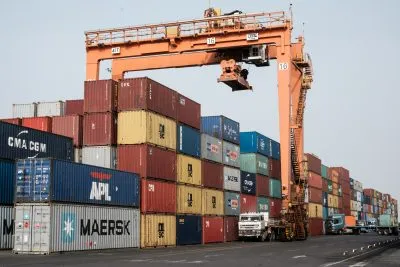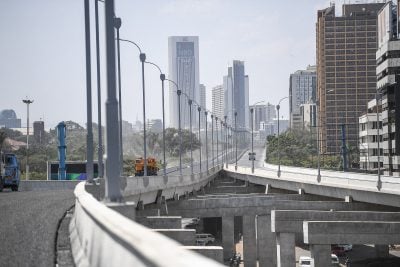Africa Oil & Gas: New hope for Africa’s refining future. Africa’s richest man, Aliko Dangote, has announced plans to develop a massive new oil refinery in Nigeria, with the capacity to produce 400,000 b/d of fuel.
The state-owned Nigerian National Petroleum Corporation (NNPC) has four plants with combined production capacity of 445,000 b/d but they are ageing, inefficient and frequently out of service. Estimates on just how little the four plants produce vary wildly, but most suggest that they operate at less than a quarter of their design capacity, so the new facility would provide a huge increase in national refining capacity. At present, the country is forced to import most of the petrol, diesel, aviation fuel and other refined petroleum products that it imports. An incredible price tag of $9bn has been put on the new venture, which would be built outside Lagos, although this includes an attached fertiliser and petrochemical plant.
Dangote Group has a strong financial track record and a number of sources suggest that the company pays lower interest rates for financing than the federal government of Nigeria. It recently secured a $3.3bn syndicated loan from a consortium led by the UK’s Standard Chartered that was underwritten by the company’s financial history.
Aliko Dangote himself is estimated to have personnel wealth of $22bn, partly through his controlling stake in Dangote Group. Much of his wealth has been generated from the firm’s cement operations, which are now being expanded into more than a dozen other African countries.
His cement success was made possible by an agreement with the government to place restrictions on cement imports. Similar support from Abuja may be required if the refinery is to get off the ground and become a success. Yet here it is the removal of subsidies on imports that is needed, rather than duties on them.
As the biggest ever industrial scheme in the country, the project would be even more important as a symbol of Nigerian and African economic maturity. It could also inject greater confidence into a sector that attracts more criticism of corrupt and poor management than any other in the country – fuel refining and distribution.
Despite Nigeria’s dire need for a modern new refinery, successive governments have been unable to persuade potential suitors to actually construct a new plant because of the corruption that is tightly bound up with the system of fuel subsidies.
Doyin Okupe, the senior special assistant to Nigeria President Goodluck Jonathan, says that the project will “change the economic and industrial landscape of Nigeria”. Jonathan has made clear his support for the venture, yet questions remain over how the plant can operate commercially within a framework of fuel subsidies. The cost of importing refined fuel will be avoided but imported fuel benefits from subsidies that are designed to maintain supplies.

Ugandan ambition
Other planned new refineries in Africa would not be as big as the Lagos plant but can be regarded as equally ambitious in the context of their respective domestic markets.
Ever since oil was discovered in the Lake Albert Basin in 2006, the government of Kampala has been keen to ensure that a large proportion of production is refined within the country. A plant is planned in Hoima District, about 240km west of Kampala, with initial refining capacity of 60,000 b/d and ambitions to ramp it up to 200,000 b/d at a later date.
The first stage of a tender for the contract to build the $2.5bn facility was completed in December, when a short list of six companies was announced out of the dozens of initial bidders.
The six are the UK’s Petrofac consortium, China’s Petroleum Pipeline Bureau, South Korea’s SK Energy, Japan’s Marubeni Corporation, Company Vito of the Netherlands and Russia’s RT Global Resources.
More detailed financial and technical proposals must now be submitted. The selected bidder will take a stake of up to 60% in the venture, with at least 40% going to the government of Uganda, although 10% of this could be reallocated to neighbouring governments that might wish to source fuel from the plant.
New refineries in landlocked African countries, such as Uganda and South Sudan, are hampered by the difficulties inherent in shipping fuel to export markets. This makes them vulnerable to changes in government policy, such as subsidies. At the same time, however, they would be protected from foreign suppliers to some extent by their distance from the sea.
In addition, many African ports cannot handle the giant tankers becoming increasingly common around the world, although bunkering at sea to smaller vessels is an option. Neighbouring South Sudan also hopes to develop its own oil refinery to process domestic oil production, even though the construction of two large refineries relatively close to each other in the heart of Africa seems unlikely at present, given the poor security situation in South Sudan and the limited size of the market. A very small refinery is planned in the first instance, with capacity of just 5,000 b/d but the government in Juba hopes to oversee the construction of a much larger facility in the longer term.
In addition, China National Petroleum Corporation (CNPC) has recently completed two 20,000 b/d refineries in landlocked countries: in Chad and Niger respectively, although most refineries are built on coastal sites.
Further afield
Elsewhere on the continent, Saudi Bin Laden Group plans to quadruple output at Senegal’s tiny 27,000 b/d plant, while Angola’s Sonangol began building a new refinery in Lobito in Benguela Province in 2012. It will ultimately have refining capacity of 200,000 b/d, with Phase 1 of the $8bn scheme due for completion in early 2016.
It will offer competition to South Africa’s big but ageing refineries to supply other markets in the Southern African Development Corporation (SADC).
Algeria’s Sonatrach is currently expanding the capacity of its biggest refinery, the Skikda plant, to 300,000 b/d and has awarded a contract to OCI Construction to upgrade its 60,000 b/d Algiers plant. After years of delay, it now looks more likely that the only project on the same scale as the Lagos plant could actually be developed. Sinopec of China and South Africa’s PetroSA aim to build the 400,000 b/d Mthombo refinery project in the Coega Industrial Development Zone around the Port of Ngqura.
Despite this string of project announcements, international opinion does not appear to favour the construction of new African refineries. Many regard them as vanity projects that often generate little profit. Barclays analyst Miswin Mahesh said: “Although refinery economics do not recommend these countries build their own refineries, especially given the expansion in refining capacity globally, domestic self sufficiency in refined products continues to find political goodwill in these countries.”
One of the main difficulties is the advantages of scale that much larger facilities elsewhere in the world enjoy. Most new plants produce at least 200,000 b/d and often more than double that.
As might be expected, global refining capacity is increasing at the same time as the number of actual refineries is falling because capacity is being concentrated in an ever-smaller number of locations. Foreign suppliers increasingly include US firms among their numbers as the North American shale oil revolution results in more surplus cargoes that need to find an outlet.
Many older African refineries produce a narrow range of fuels and it is not commercially viable for them to switch between different products on a regular basis. In September, Indian firm Essar Energy announced that it would sell its 50% stake in Kenya Petroleum Refineries Ltd, the company that operates the Mombasa oil refinery, despite buying the asset as recently as 2009. The owner of the remaining 50% equity, the government of Kenya, seems the most likely buyer but massive investment is required in order to turn the plant’s economic fortunes around.
Essar bought its stake for just $7m from a consortium of BP, Chevron and Shell. An Essar spokesperson said that upgrading the facility “was not economically viable in the current refining environment”. Nairobi would like to double the plant’s capacity from 35,000 b/d to 70,000 b/d but may struggle to find a new private sector partner to help make this a reality.
Want to continue reading? Subscribe today.
You've read all your free articles for this month! Subscribe now to enjoy full access to our content.
Digital Monthly
£8.00 / month
Receive full unlimited access to our articles, opinions, podcasts and more.
Digital Yearly
£70.00 / year
Our best value offer - save £26 and gain access to all of our digital content for an entire year!
 Sign in with Google
Sign in with Google 



